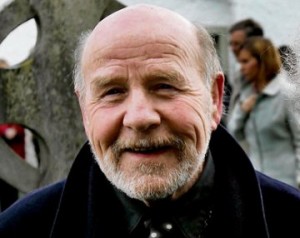You have no items in your cart. Want to get some nice things?
Go shopping
When the Guardian recently ran a series of podcasts celebrating the short story, Chekov, Ballard, Hemingway, Carver all predictably featured. It was Eugene McCabe’s perfectly formed Music at Annuhullan that resonated most strongly, that evoked something universal and powerful in its slight story of an Irish farm. Colm Toibin read in a natural brogue and bestowed on McCabe almost mythical status as Ireland’s finest living writer of prose. Following his description of McCabe’s only novel, Death and Nightingales, as “an absolute masterpiece”, I immediately purchased and read it.
It is set in the Ulster of the late nineteenth century and places the landowning Winters family at its epicentre. The broader context of a nation tearing itself apart, divided by religion, class and politics, looms uncomfortably, pervading the beautiful Irish landscape. Everywhere the figure of Parnell is a potent and confused symbol; the famine is not yet a distant memory and the Phoenix Park murders immediately precede the novel. The question of whether Ireland is a bleak and macabre place or God’s own paradise seems an important motif that McCabe finds intrinsically linked to the country’s history. Whatever Irelands centrality to the story and its concerns, it is the realism and tragedy of his characters that is at the heart of all that is good about McCabe’s writing.
The Winters are comprised of Billy, the widowed father, and his daughter Beth. Yet their relationship is confused by dark secrets that take it into realms of hatred and incest. Beth occupies much of our sympathies as she contemplates escaping the only place she knows in search of some other life, but the tensions that are tearing at Ireland threaten even this. McCabe employs moments of stream of consciousness in an otherwise lucid and unsentimental narrative, a technique that is effective in a novel essentially focussed on the competing hopes and fears of his small Ulster cast.
Throughout it is compelling and evocative, in the vein of historical novels, but it is in its exploration of what it means to be human, with our dreams and flaws, that it transcends a diminishing label such as this. A bleak picture of humanity brought out by famine, inequality and class struggle; a testament to the depravity of man and how evil breeds evil with little chance of redemption. This drama of nations and families is a perfectly structured and engaging story that comes full circle in its short span and where the past is a constant that cannot be left behind. It is part of the contemporary Irish canon and seems set to take an important place in the history of Irish literature.
To hear Colm Toibin read Eugene McCabe’s Music at Annuhullan visit https://www.guardian.co.uk/books/audio/2010/dec/07/colm-toibin-eugene-mccabe.
Death and Nightingales is published by Vintage (https://www.vintage-books.co.uk/). If you enjoyed this novel you might like Joseph O’Connor’s Star of the Sea.




